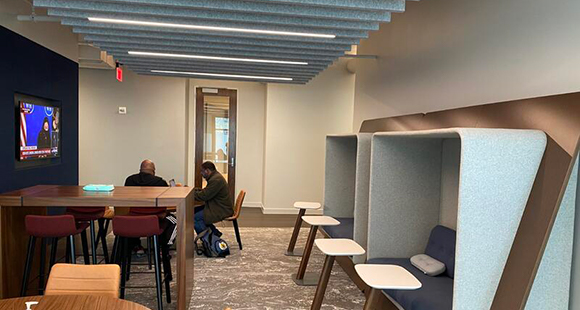The Future of Atlanta Office Space
This article originally appeared in Hypepotamus. Click here to read the full article.
The State of Class A and Class B Office Space
Cresa, the world’s largest occupier-only commercial real estate firm, has a unique perspective on where the Atlanta office space market is heading. Brooks Morris, principal at Cresa, spoke to Hypepotamus about how companies of various sizes are thinking, or rethinking, office space as we head into the second half of 2021.
In its Q1 market report, Cresa notes that Atlanta has 5.9 million square feet of sublease office space currently on the market and 7.2 million square feet of new construction underway.
“Everything was predicated upon vaccines. Large companies have the confidence now to actually pull the trigger (on real estate leasing deals and return to office dates),” said Morris.
But where exactly the market will land coming out of COVID is still a bit in flux. “Because landlords weren’t chasing a lot of deals this last year, there’s not a lot of understanding about where rates will end up.”
Morris says that rental properties, particularly Class A spots, have largely maintained their rates throughout COVID.
Atlanta, he said, has some unique advantages coming out of COVID that have helped keep rates steady. As a car-first city, fewer Atlantans rely on public transportation to get to work compared to places like New York and San Francisco. While we may locally complain about traffic, Morris notes this is helping more people return to the office safely this spring.

Secondly, announcements like Google adding 19 floors in Midtown and Microsoft breaking ground on a new HQ on the westside has helped subsidize a lot of the growth throughout the local commercial real estate market.
Now, Morris says it is all about the “flight to quality.” This means a search for less dense, more amenity-rich properties.
“Coming out of COVID, a lot of companies would rather have a little less space, but a higher quality space with the right HVAC systems and the right building support,” Morris said. “If employees are going to come to the office and aren’t staying at home, there’s going to have to be something different about the office experience,” added Morris.
In turn, Morris said that certain Class B spaces are hurting, largely because the convenience factor isn’t there. The “value play” of Class B space might not be enough as they try to compete with space that offers higher quality health and safety amenities and more convenient locations.
Pre-COVID, open office trends meant technology companies allocated around 150 square feet of office space per employee. “But you can only get so dense,” Morris explained, as it puts strain on the parking, HVAC, and elevators in a building. The focus post-COVID appears to be finding spaces with conference rooms or huddle rooms and collaboration spaces while de-emphasizing hot desks.
“At this point, I wouldn’t say that I’m worried about the market getting too tight and getting hot in Atlanta, where the rental rates are going to start increasing,” said Morris. “The commercial real estate market moves slowly and I think we’ve got maybe another 12 months or 18 months before we see how the behaviors of companies impact the long-term direction of rental rates.”